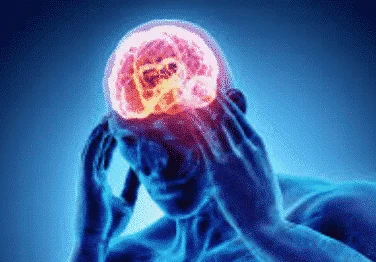Hello again TOK-ers. In my first post of this series I talked a bit about HOW you find a real-life situation for your knowledge question. Continuing on with that theme, I thought I’d go into a little more depth about how you actually form that ever so tricky knowledge question.
So my IB warriors, it’s time to TOK this, once again.
Why the TOK do I need a Knowledge Question?
When it comes to TOK, a knowledge question is pretty important. In fact, if you check out the IB TOK syllabus (which you should) it says this:
‘An essay or presentation that does not identify and treat a knowledge question has missed the point’.
Pretty harsh huh?
But also, very true. The entire point of TOK, if you haven’t figured it out by now, is to examine HOW we know something (if you want some more help to understand why the IB makes you do TOK, check this out).
Your knowledge question is also super important because it’s the entire basis for your essay or presentation. A good knowledge question is a big step towards a good bit of TOK work.
So, how do you make an epic knowledge question?
Get some TOK in your life
For those of you paying attention in my last blog, you’ll have noticed I spoke about working backward from your real life situation. So find a real life situation you think it TOK-able, and make a knowledge question from that.
I realise, however, that this is easier said than done. So, I thought I’d break it down some more.
TOKing about my knowledge question
Essentially, a knowledge question takes 4 forms:
- How do we know what we know?
- What counts as evidence for X?
- What makes a good explanation in subject Y?
- Do we know whether it is right to do Z?
And gene
rally speaking, you can replace X, Y or Z with either an AoK or WoK.
Constructing a knowledge question
When constructing a knowledge question, though, it’s important to remember a few things. Specifically, the characteristics of a knowledge question:
- They are about knowledge. Obvious right? But remember, they are not questions of knowledge themselves. So, not a question such as ‘Is art beautiful?’ because this is about art in general, not about how we know things in art. Instead, they should focus on the methods and mechanisms that produce knowledge. These ‘methods and mechanisms’ are our WoKs. So, a better knowledge question would be ‘How do we know art is beautiful?’. This is better because it encourages you to explore your WoKs, so sense perception or emotion would be relevant to this question.
(Remember, you can have a look here if all this talk of WoKs and AoKs is confusing)
- They are open-ended. There should be a number of plausible answers to a knowledge question. You don’t have to know them all, but in TOK it really is true that there are no wrong answers. As long as your argument is logical and evidenced, you’re good to go. So taking our previous knowledge question: ‘How do we know art is beautiful?’, there are lots of possible answers: ‘because you emotionally connect with it’, ‘because visually (using your senses) it seems perfect’, ‘because
your culture tells you so’, and so on – you get the gist.
- Knowledge questions should be written in general terms. It should not be rooted in a specific example, such as your real-life situation, but should use more general language. It can be hard to know how general to be. A rough rule I had as a TOK student was that knowledge question should not use vocabulary specific to a particular AoK. If you are using history as an AoK, therefore, you shouldn’t mention ‘historiography’ in the title.
Putting TOK into Practice
So, when looking at your real-life situation, think about how you can apply these things to make a knowledge question. For example, you might be interested in Physic. From studying physics in class, you might be interested in the Higgs-Boson theory. As a result, you might have found an article about potentially proving the Higgs-Boson theory definitively.
So, taking this as a base for a knowledge problem, you might first come up with something like this:
‘How can a physicist know whether the Higgs Boson exists?’
The problem with this question—as you can see—is it’s too specific. It talks directly about a scientific theory. It is, however, a good starting point.
From this, you can think—what is the Higgs Boson? Well, it’s a theory or prediction. From this prediction about physics, we can gain knowledge. And then we can think what AoK it relates to: here, clearly science. Taking these elements, we can then rework it into an actually knowledge question:
‘How do scientists use predications to produce knowledge’.
These knowledge questions tick all the criteria: it’s about knowledge, it’s open-ended, and it’s general. A perfect beginning to a TOK assignment!
In my next post of this series, I’ll be mixing it up a little and talking about how you actually respond to these knowledge questions. Check back soon for some more TOK love.
T.O.K out.
Read Part 3: Taking TOK to the next level




